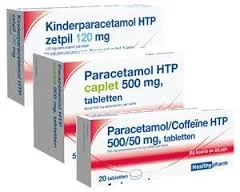The Federal Government through the
National Agency for the Control of AIDS (NACA) and the Nigeria Centre
for Disease Control (NCDC) has dismissed the claims by a Professor of
Veterinary Medicine and Clinical Virology at the Michael Okpara
University of Agriculture Umudike, Abia State, Maduike Ezeibe, to have
discovered a new drug for the cure of Human Immuno-deficiency Virus
(HIV)/Acquired Immune Deficiency Syndrome (AIDS).
An editorial in a Nigerian newspaper quoted the professor as saying that the drug, produced
with “Aluminum Magnesium Silicate” was tested on ten persons living
with HIV. The newspaper reported a clinical outcome of an ability to
“reach all cells” and making HIV “a conquered organism.”
Director-General, NACA, Dr. Sani Aliyu,
and Chief Executive Officer NCDC, Dr. Chikwe Ihekweazu, in a joint
statement yesterday said there was no evidence from the publication that
the authors obtained ethical clearance from an appropriate body in
Nigeria to conduct this study, and only ambiguous evidence that informed
consent was sought from the evidently vulnerable patients.
They said there is really no basis for a
claim to cure of AIDS in this study and are concerned that the
publicity given to this claims will stop patients with HIV from taking
life-saving anti-retroviral drugs (ARVs) and give them false hope of a
cure.
The statement noted: “It will be a great
disservice to this vulnerable group of patients for the media to
disseminate this claims in the absence of sound scientific evidence.
There are long established, tried and tested routes for the discovery,
development and validation of modern medicines before they can be
registered and used for treatment in humans and animals.”
NACA and NCDC called on all academics to
follow legal and scientifically acceptable methods in conducting their
research and to avoid making premature claims capable of derailing the
huge progress made in the last two decades on the war against HIV/AIDS.
The government agencies said millions of
lives have been saved as a result of modern antiretroviral treatment
and people living with HIV can now look forward to a normal healthy
future. They, however, said they will continue to support the hard and
diligent work being done by scientists in Nigerian universities and
research institutions around the country. “We are always ready to
partner with our scientists on all aspects of HIV research provided this
is in line with international best practice,” they noted.
NACA and NCDC called on editors of media
houses in Nigeria to seek comments from the leadership of relevant
government parastatals and professional bodies when it receives new
research findings related to their areas of responsibility. “We assure
you that we will respond rapidly and constructively to any queries. We
also urge the editors of media houses in Nigeria to support their
reporters to gain a deeper understanding of the complexities involved in
the clinical trial process. In the run up to the next deadline, it is
easy to fall into the trap of doing more harm than good, and the
consequences of this can be deadly in the health sector. We will support
the evolution of robust science journalism in Nigeria,” they noted.
They called on all patients living with
HIV that are currently taking their medications to continue to do so and
to see their doctors if they have any concern.
According to the statement, the NACA
helpline (6222) is available on working days from 8am-8pm for the public
seeking more information on HIV disease.



























